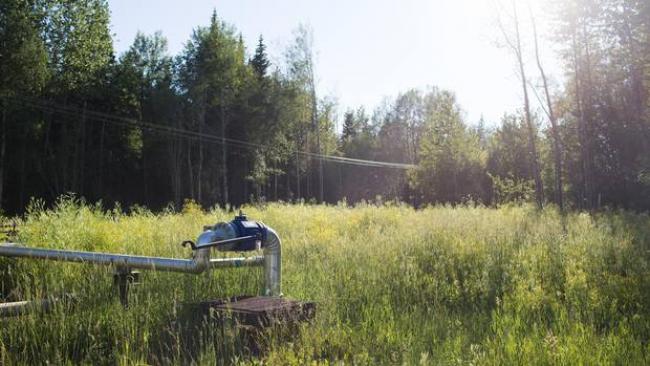Articles Menu

May 27, 2016 - The New Brunswick government has extended for an indefinite period its ban on hydraulic fracturing, saying the jury is still out on the risks to public health and environment from the controversial practice.
The province has faced major divisions over proposed shale gas development, with industry arguing it would spur the economy and boost job creation, but many residents and First Nations activists fearful of the potential environmental impact of fracking – the technique of using chemically laced water under high pressure to break rock and extract natural gas or oil.
“I think more work needs to be done” on the safety case, Energy and Mines Minister Donald Arseneault said on Friday in a telephone interview. “These issues are not resolved and they’re not getting the buy-in or confidence of Canadians or New Brunswickers that we can mitigate some of these issues.”
The province is believed to have a significant amount of commercially recoverable shale gas, but companies have been unable to establish the extent of it because of public resistance to drilling. One Halifax-based firm, Corridor Resources Ltd., does produce gas in the province, both by conventional means and, previously, by limited amounts of fracking.
After being elected in September, 2014, Liberal Premier Brian Gallant imposed a moratorium on hydraulic fracturing.
A Liberal-appointed commission reported in February and recommended that the government take time to build public trust and to appoint an independent regulator to oversee development.
However, it warned that the province is dependent on natural gas and that current supplies from the Nova Scotia offshore are rapidly dwindling. New Brunswick will have to rely on fracked shale gas from the United States or Western Canada if it doesn’t develop its own, it said.
Mr. Arseneault said the government is not permanently rejecting the development of shale gas, but he added that many things need to happen before the public is willing to accept it.
“If we’re going to develop natural resources in this country – let alone in New Brunswick – we’ve got to change the way we do things,” he said. “How do we get communities more involved? How do we get First Nations to work with industry and government? They’ve got to be at the forefront and not in the background.”
However, the business lobbyists criticized the government’s move, warning that the province is forgoing an unknown opportunity to boost the provincial economy, which has been struggling for years.
“The business community in New Brunswick is very disappointed that the government chose to go down this road of effectively putting a ban on natural gas exploration and development,” said Joel Richardson, Fredericton-based vice-president for the Canadian Manufacturers and Exporters Association.
“They’re saying the No. 1 priority is job creation, but they’re not going to lift up the rocks to figure out what economic opportunity lies underneath.”